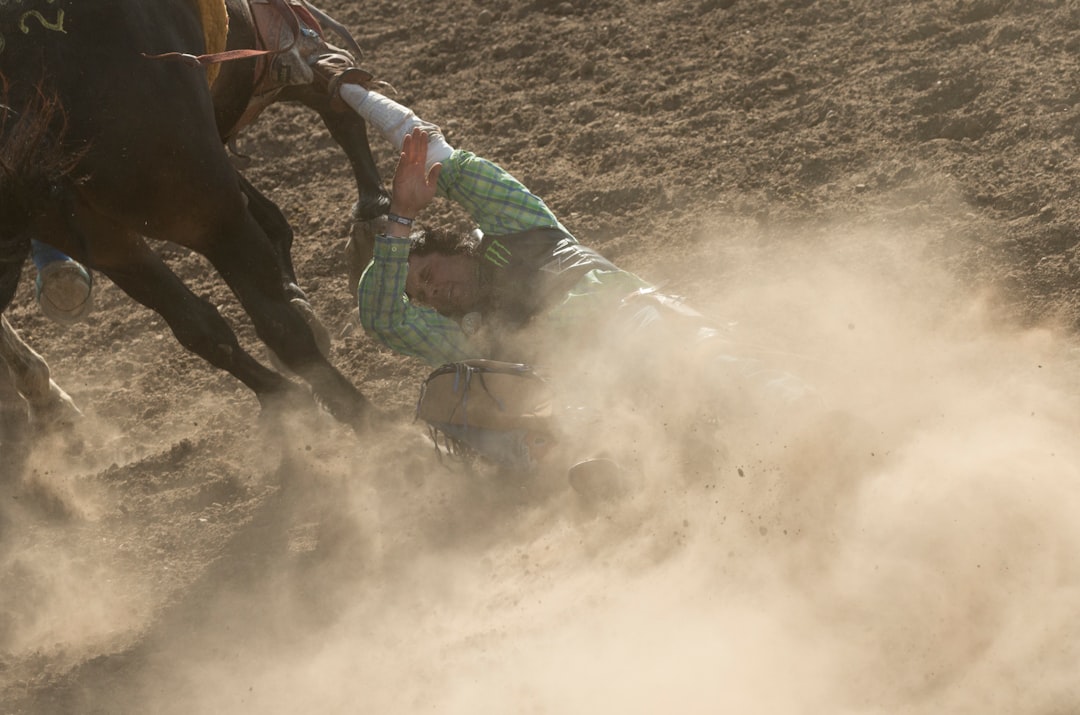Let go or be dragged: A Zen proverb for March
Mixing metaphors, homilies, horoscope advice, and one theorem from statistics
A woman I know tells a story of taking her elderly aunt to the bank to deposit a check the old-fashioned way: paper check, inked signature endorsement on the back. For the purposes of this story, I’ll call the niece in this story The Driver.
The Driver had always felt especially close to her diminutive and fiercely independent Aunt, spending many lunch hours running little errands like this.
It was a busy day and by the time they reached the front of the line at the Bank’s drive-thru, there were two cars behind them in the lane closest to the tellers’ window. Without the glass and microphones between them, The Driver could’ve booped the smiling young teller on the nose with her left hand.

The Driver put the car in park, said “hello” to the teller’s greeting, and looked over at her aunt to discover that she was fishing in her giant purse for a pen. It might have crossed The Driver’s mind that signing the check could have been done in advance, but she took a deep breath and let that go in the way that we often do out of respect for seniors confused by the speed of modern technology.
The Driver peeked at the rearview mirror at the growing queue of cars, smiled, shrugged awkwardly at the teller, and quietly started looking for another pen.
“Eureka!” Aunt announced, cheerfully brandishing the linty pen.
Aunt was about halfway through her signature when she fumbled the pen and it dropped into the crack between her seat and the console. She plunged her left arm into the crevasse and commenced searching.

The Driver was more aware of the warm weather than she might have preferred.
“Everything okay out there?” the teller asked cheerfully
“I think I’ve got it!” Aunt shouted at The Driver’s open window, “I can feel it with my fingers!” Her arm was elbow deep in the crack and her head was practically in her niece’s lap at this point. Aunt shot a quick smile at the teller, who was easy to see from this angle.
“I can send you a pen, if you need one,” the teller offered.
“Nope, nope, I’ve got it,” Aunt frowned in concentration. “I’ve got my hand around it, now.”
“Hey, you know the teller can just send us one of the bank’s pens with that tube thing… Really quickly? They give those pens away all the time,” The Driver said.
“Ahhhhh…got it!” With the pen in her fist, Aunt steadied herself and started to extricate her arm, but her fist was too big to fit through the gap and she dropped the pen. The process started again. Aunt would get the pen into her grasp, she’d start to pull, and her fist would block the exit. Cars behind them were beginning to back up and move to other lanes.
Confident that Aunt was sufficiently deep in concentration, The Driver stealthily maneuvered her left hand in the direction of the teller and pushed the “Send” button on the pneumatic tube machine; she nodded at him with a tiny writing-with-a-pen gesture.
He nodded back.
The machine whooshed and bumped and the tube appeared with a pen and two lolly pops. Aunt unclenched her fist, let the pen drop, and got herself unstuck.
That’s what the story was about: releasing one’s grasp, unclenching that fist that’s caught in the crack. I hadn’t seen this conclusion coming—I’d thought the narrative was leading to a theme more like why it’s important to be patient with seniors—so the plot-twist element really worked on me.
It’s been a few years since I heard this story and I think about it all the time. The elderly Aunt with her fist caught between the seat and the console has proven to be a versatile metaphor. Is it time to unclench my fist, let go, and take a different tack? Maybe ask for help?
The metaphor works well for academic careers. Since losing my full-time faculty position after 11 years at the beginning of COVID, I am down to teaching a single adjunct course and am signed up to teach another in the fall—Technical Writing, my original entry to higher ed and one of my all-time favorite courses to teach. I have been doing more contract writing and editing over the past year and—it’s hard for me to even write this, but—I might be falling out of love with teaching.
I am part of a social media group of professors and former professors who’ve left academia or have their eyes on the exit. There are around 20k members of the group, which number in itself is arresting, but which also provides a statistically significant narrative.
I am not a statistician—in fact, I’m not even good at higher math—but when I was teaching an honors research methods course for undergrads, we discussed the statistics theorem called the Law of Large Numbers (LLN). In simple terms, it means that the more often we can observe the same phenomenon, the more “robust” the results are. Here’s an example.
Scientifically speaking, gravity isn’t a law but a theory. However, if we test it by jumping off of a roof and get the consistent result that our bodies drop down toward the earth rather than, say, levitating above it, we can rely with increasing confidence on the truth (accuracy, factual reality, whatever) of the theory. The more often we replicate an experiment and achieve the same results, whether it is conducting a lab experiment, jumping from a roof, or dropping a pen in a car—which, in my personal experience results disproportionately often in the pen falling into the relatively tiny crack between the seat and console—the more we can predict the likely outcome.
The LLN is one of the reasons that science specifically and academic research in general can feel so slow. COVID has made social media science experts out of lots of the people who failed my high school biology class and one of their common claims is that “the science keeps changing” regarding COVID phenomena like disease transmission, the efficacy of masking, and vaccine recommendations. Yes, that’s how science works.
Marty Byrde, Jason Bateman’s financial-analyst-turned-money-launderer character in the series Ozark explains it like this:
As individuals, people are completely unpredictable. Okay? One person making one bet... I couldn't possibly tell you what they're going to do. But the law of large numbers tells me that a million people making a million bets? That is completely predictable. Completely ordered.
The LLN says something like, we’ll know more about it when we know more about it. If I tell you I’ve invented a pill that makes you fly, that it works for me, but that results may vary for you, you might not want to try my bold new invention because the results are based on a sample size of one. Let’s see if we can replicate those results with a larger number participants first, LLN says. Every time we add a data point, we can jump off that roof, or not, with greater confidence.
But, back to how the LLN applies to the social media conversation between 20k-ish disgruntled academics: the Big Picture narrative is not pretty. It’s not a million data points, but 20k is a solid number. Professors report harassment, missing paychecks, and compounded work loads. Administrations and Boards are made up increasingly of people who’ve never set foot in a classroom and are treating higher education as a business. Seen as a business, faculty members can be seen as pricy cost units, so administrative bean counters are asking faculty members to justify their positions with market research, employment outlooks for their majors, and an array of “service opportunities.”
I am reminded of the scene in the movie Office Space, when “the Bobs,” consultants/henchmen for hire ask each employee “what…would you say you do here?” Incidentally, I have just discovered that “the Bobs” has been added to Urban Dictionary as “A term for a consultant brought into a corporate office to evaluate efficiency. This consultant is typically an omen of future downsizing and layoffs.”
The professors, former and current, are none too gruntled. It’s not great for morale.
Professors can and do post in this group anonymously and must sign a contract to respect anonymity before being permitted because the fear of institutional retaliation is so widespread. Many have noted that posts sound like they’ve come from people trying to justify escaping abusive romantic partners.
I am trying to weigh the plusses and minuses, the profits and losses. I need an accountant, maybe a crystal ball, to figure out if the access that is granted to me because I still have that .edu email is worthwhile. The line between being a trick rider and being dragged is thinner than one might imagine.

Fortunately for me, I live with two small Zen masters
Pinky and Birdie, Destroyers of Worlds, remind me daily of the concept of impermanence. They are adorable and I love them, but keeping them from harming themselves, destroying everything we own, and occasionally managing both at the same time, is a job.
A partial list of things I’ve taken from them or that they’ve destroyed in the past few days, in no particular order because: chaos.
The title to my daughter’s car, shredded
One vehicle registration form, shredded
An entire box of what I originally thought was ramen noodles, but turned out to be some kind of kindling bundles (see above photo)
My fuzzy slippers, one partially destroyed, the other just slobbery
Three small apples on three different occasions (especially impressive as capturing them required Pinky, the most skilled table climber, to get onto the breakfast table, retrieve an apple only slightly smaller than her skull from a bowl, and jump down without dropping the prize as to best taunt Birdie)
Tissue, empty toilet paper rolls, and other trash from the bathroom can
One “Choco-Role” (“with pineapple cream filling!”) wrapper that Birdie found in the construction detritus next door during one of her successful escape attempts
Two ink pens: one salvaged and the other completely destroyed
One remote control, salvaged with teeth marks and a newly sticky power button, probably destroyed
Various items captured by Pinky and added to her magpie nest on the couch: shoes, socks, underwear, bathmat, hair ties, clumps of mulch, and quite a few small rocks
I spoke to a behaviorist dog trainer yesterday, recommended to me by a brilliant former student, and I’m hoping to get her booked in the next few weeks. So, following the through-line of letting go or being dragged, it’s not like I’m letting go of the hope of getting them civilized, but I am definitely having to let go of my attachment to some stuff.
Honestly, the greater concern is that they’re going to harm themselves—the plastic shards on the ink pen they destroyed were hard and sharp and on their way down their little gullets when I had to pry them out of their little rice teeth. As I recall thinking when my human children were toddlers and later teenagers, how has this species managed to survive its own recklessness and stupidity? Because evolution favors the cute?
I have only ever been the most casual horoscope follower. I am personally not holding up my end for the whole sexy and mysterious Scorpio profile. But, I started reading a weekly one a few months ago because it shows up in the feed on one of my favorite time-wasting websites. This week, it said my goal was to float; let things unfold without working too hard. In fact, it said that if I was working hard, I was doing it wrong. Not making an effort is an effort for me, so, this is probably good advice.

As a serial rule-follower and non-upsetter-of-apple-carts (Did I mention I’m a bad Scorpio?), the part of the story of the Aunt with the pen in her fist that I am focusing on is the letting go of outcomes—putting in the work, but not getting so focused on the outcome that I am blind to easier solutions.
I am talking to some interesting people about some interesting opportunities right now, but I don’t want to jinx myself and I certainly don’t want to be talking more than doing. A standard-issue curse of the writing professor life is getting to listen to a great many people tell you that they’re writers. You’re a writer? I’m a writer, too! I’m writing a novel; I haven’t started writing anything, but it’s all right here [taps side of head].
As the pastor of my hippy church once said, we all live downstream from our own choices, so we shouldn’t dump sewage into the water unless we want to get a mouthful of it later. Or, conversely, work hard upstream and maybe find downstream life a little easier and more pleasant. But—mixing metaphors, homilies, horoscope advice, and Zen proverbs into a low-carb cocktail of guiding wisdom—I’m trying to release my grip on outcomes.

When my kids were babies, I remember watching them sleep and suddenly being aware that I was trying to breathe for them—staring hard and willing them to live by breathing in and out, mirroring their weirdly shallow little breaths and holding my own breath when they paused. It turned out they were breathing on their own all along.
The Ides of March has come and gone—the date for settling accounts in Ancient Rome—and I do not have a decision. So: floating. Floating like otters, holding hands and being cute.
First Lesson
by Philip Booth
Lie back, daughter, let your head
be tipped back in the cup of my hand.
Gently, and I will hold you. Spread
your arms wide, lie out on the stream
and look high at the gulls. A dead-
man's-float is face down. You will dive
and swim soon enough where this tidewater
ebbs to the sea. Daughter, believe
me, when you tire on the long thrash
to your island, lie up, and survive.
As you float now, where I held you
and let go, remember when fear
cramps your heart what I told you:
lie gently and wide to the light-year
stars, lie back, and the sea will hold you.







The concept of letting go is double-edged: freeing and terrifying! The answer will come. Eventually, you will know what to do.
If you have never listened to the podcast, Thirst Aid Kit (if not, what are you doing with your life?!), when I read this, "the part of the story of the Aunt with the pen in her fist that I am focusing on is the letting go of outcomes—putting in the work, but not getting so focused on the outcome that I am blind to easier solutions." I whispered, "bitch," to myself. Damn that was good. All of it was but that one hit me in my third eye.